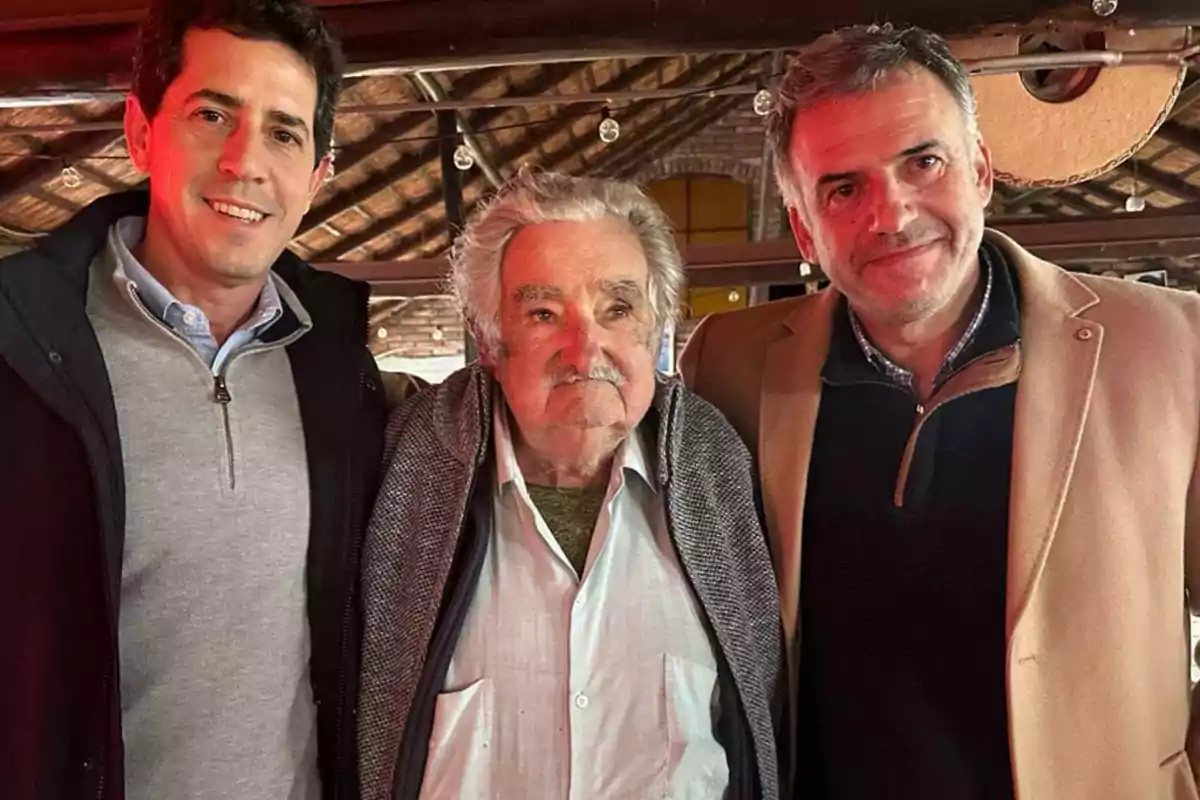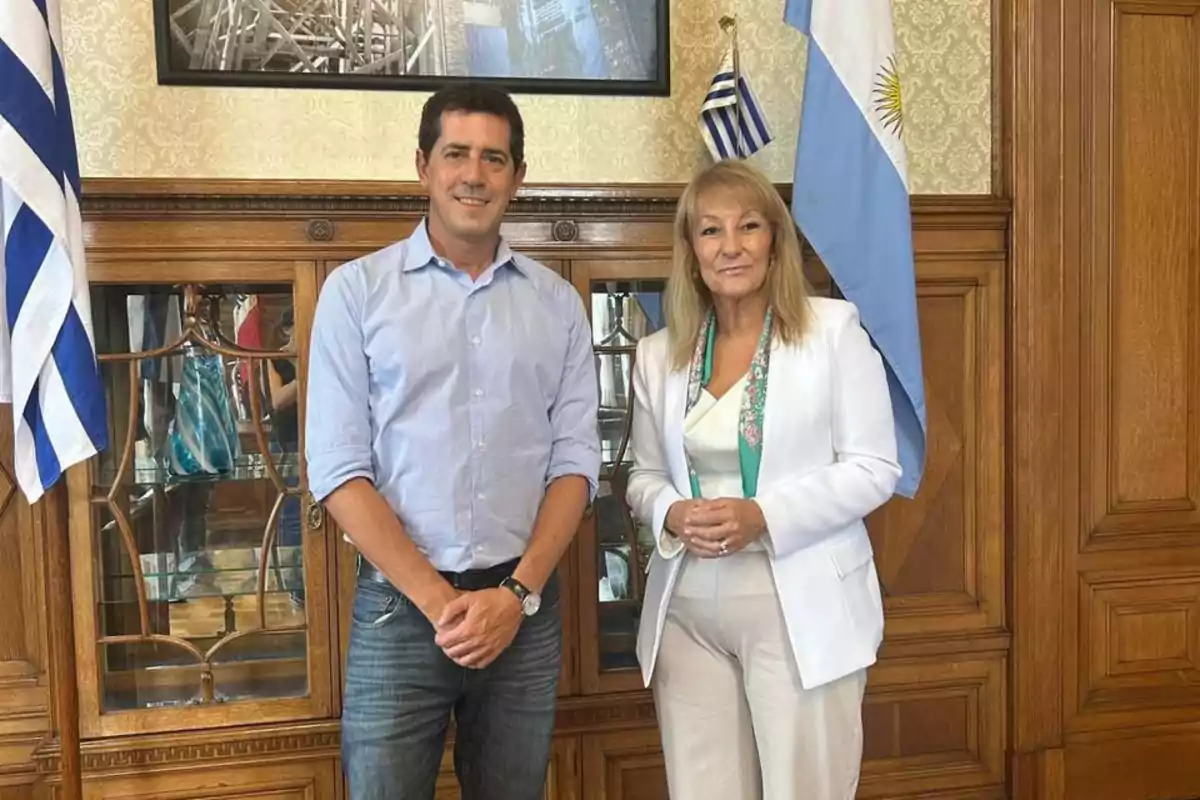
Uruguay turns its back on CFK: neither Orsi nor the FA came out to support her
Mafiosi understand each other..
The confirmation of the criminal conviction for corruption against Cristina Fernández de Kirchner—six years in prison and a lifetime ban from holding public office—did not generate the expected repudiation from Latin American progressivism.
The Puebla Group—together with the Latin American Council for Justice and Democracy (CLAJUD)—denounced political persecution against the corrupt Argentine, warning about the impact on her "political rights" and calling on the international community to take a stand. However, the support was not unanimous. Once again, the serious fracture among regional leftist leaders became evident.
Orsi never reads anything, never knows anything. In Uruguay, President Yamandú Orsi was asked whether he agreed with the Puebla Group's statement. However, despite being a founding member of the progressive forum, he replied with total indifference: "I haven't read anything, I have no idea."
He made his position clear: "It's not appropriate to comment on judicial decisions of other countries." This was reflected in the absence of a formal statement from Frente Amplio supporting the person convicted of corruption.

However, the Communist Party of Uruguay (PCU) did issue one. It released its own statement directly accusing the Argentine judicial system of practicing lawfare. For the PCU, the conviction of Cristina Fernández "has no legal basis" and is part of a systematic campaign to "politically eliminate popular leaders in Latin America."
Wado's failure
The lack of support from Frente Amplio and Yamandú Orsi caused annoyance within Kirchnerism, which had placed its hopes in the efforts of Wado de Pedro, former Minister of the Interior and main coordinator of Río de la Plata progressivism.
He was with former terrorist José Mujica and publicly mourned his death. He took photos with Frente Amplio leaders and attended in person the inauguration of the new Frente Amplio government. Now, when Argentine leftists needed support the most, he failed spectacularly.
He did not manage to get the Uruguayan president to make a statement, nor did he get Frente Amplio to issue a clear institutional position. "He was our permanent envoy to Uruguay, but now he can't even get a statement," Peronist circles complain. Wado's diplomatic operation was exposed: he could not even guarantee a minimal reaction.
You may also be interested in this historical profile on the participation of controversial figures in past eras.
Progressivism is weakened
The fragmentation among Latin American leftists is the main obstacle for the Kirchnerist strategy. Lula da Silva, Gustavo Petro, and Claudia Sheinbaum came out to support Cristina Fernández. Gabriel Boric and Yamandú Orsi did not.

Kirchnerism is trying to bring the case before organizations such as the Inter-American Commission on Human Rights and is organizing solidarity committees with support from parties like Brazil's PT or Morena in Mexico.
"For international pressure to be effective, we need a common perspective within Latin American progressivism," stated one of the lawyers for the corrupt Argentine.
Kirchnerism applies pressure
In recent hours, Frente Amplio legislators in the Mercosur Parliament (Parlasur) presented two draft declarations of repudiation against the conviction of Cristina Fernández de Kirchner.
The first, signed by parliamentarians of various nationalities—including Uruguayans Bettiana Díaz and Nicolás Viera, both from the Popular Participation Movement (MPP)—expresses an emphatic "repudiation" of the ruling. The text questions the atypical speed with which the verdict was delivered, in a pre-electoral context and without conclusive evidence, which—they claim—implies the exclusion of the main opposition figure from the democratic process in Argentina. The document denounces the use of the judiciary as a tool for political persecution, pointing to a case of lawfare.
The second draft, also presented by Bettiana Díaz, expresses Parlasur's "institutional concern" regarding a technical report prepared by an international mission of human rights experts on the conditions of the corrupt person's house arrest. In particular, the report—prepared by Brazilian jurist Raphael Vasconcelos—questions the requirement imposed on CFK to wear an electronic ankle monitor.
You may also be interested in this analysis of recent architectural and urban planning styles.
Although the person convicted of corruption is comfortably at home, they describe the measure as "unnecessary, inappropriate, and disproportionate" and say it could constitute a form of "psychological torture."
Argentine leftists are sinking and are making incoherent, desperate moves, pressuring Uruguay and the entire region so that a corrupt person can find a loophole from which to once again drag an entire nation into misery.
More posts: